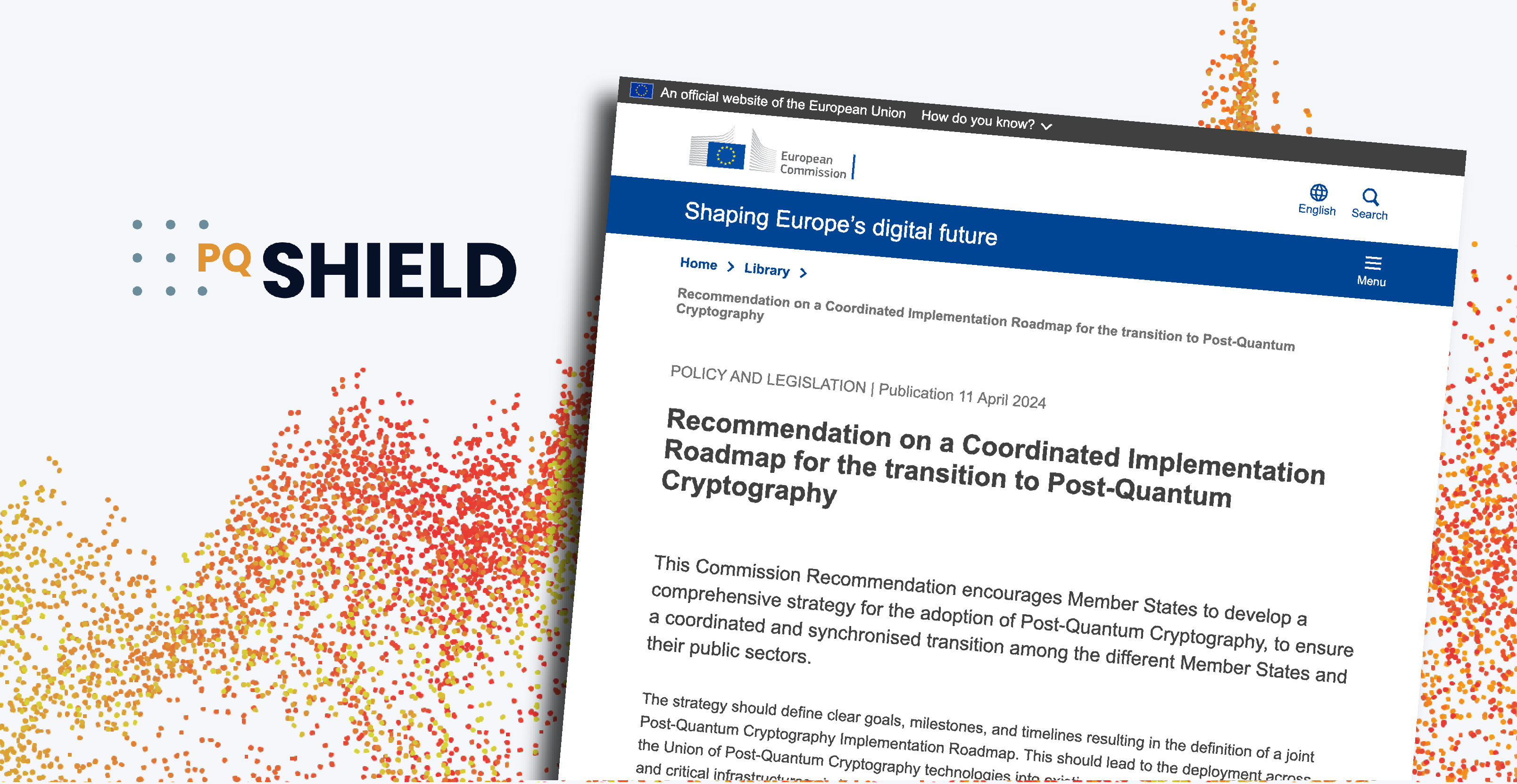The European Commission, in its role as the executive branch of the European Union, has adopted a significant recommendation for the implementation of post-quantum cryptography in a coordinated way, across the EU.
With its 27 Member States, and as one of the world’s largest economies, the European Union is of course, a key player in global politics, trade, security, and defense. It’s interesting to note the Union’s acceleration towards a strategic approach, particularly in the light of the European Parliament’s recent approval (March 2024) of the Cyber Resilience Act.
The purpose of the EC’s recommendation is as follows:
- To define a co-ordinated roadmap aimed at synchronizing Member States’ efforts to transition to PQC.
- To support the evaluation of algorithms with the help of cybersecurity experts, and work towards standardization as part of the roadmap.
- To take appropriate and proportionate measures to help prepare for the transition.
The goal is a comprehensive strategy for the adoption of PQC, defining clear milestones and timelines. The eventual product is a collaborative definition of the strategy, known as the EU Post-Quantum Cryptography Implementation Roadmap.
This in turn, leads to the effective deployment of PQC technologies into existing public administration systems and critical infrastructures.
To achieve this, the EC is encouraging EU nations to actively collaborate in a Member States’ forum, where representatives of national security agencies, cybersecurity experts, and members of ENISA (the European Union Agency for Cybersecurity) will be able to provide input and advice gathered from service providers and others, focusing on the Roadmap in line with the ongoing development of international standards.
Once agreed by Member States, the Roadmap should then become the blueprint to which national transition plans would align.
In this year of PQC acceleration, it’s encouraging to see international co-ordination in the push towards quantum-resilience, especially at the scale of the European Union. Once again, it reinforces the view of providers such as PQShield, that the quantum threat is serious and that organizations, industry, and governments should be increasingly collaborative in their approach, in order to continually stay one step ahead of the quantum threat.

